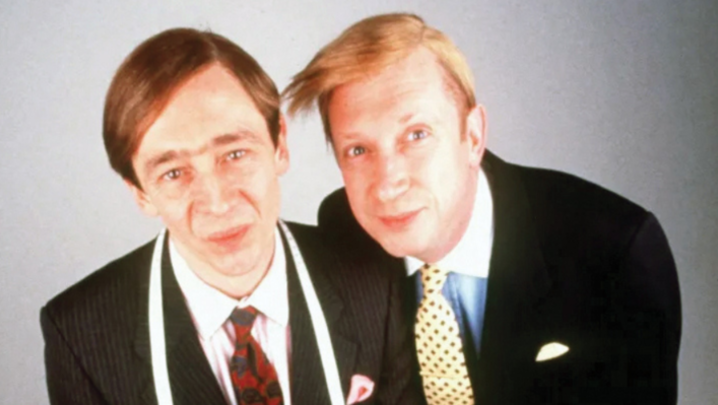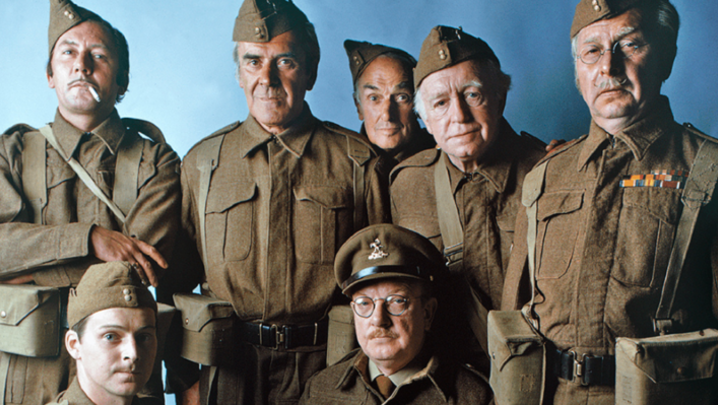Stewart Purvis sifts newly released Cabinet papers that reveal Margaret Thatcher’s mounting frustration with TV bosses and ministers.
In a classic sketch in the ITV satire Spitting Image, Prime Minister Margaret Thatcher was seen dining in a restaurant with her male Cabinet colleagues. Waitress: “Would you like to order, sir?” Thatcher: “Yes. I will have the steak.” Waitress: “How would you like it?” Thatcher: “Oh, raw, please.” Waitress: “And what about the vegetables?” Thatcher, gesturing at the Cabinet: “Oh, they’ll have the same as me.”
The Thatcher Cabinet papers for 1989-90, just released into the National Archives, show that, when it came to broadcasting policy, the Prime Minister became increasingly frustrated with the vegetables when they showed an appetite for wanting something different to her.
The papers recording the internal debates about what became the 1990 Broadcasting Act include Prime Ministerial hand-written comments such as “this is ridiculous” – and that’s just what she said about her own side.
The 1988 white paper, published in November, had set out the Thatcherite stall with a package of radical change for British broadcasting. The regulator, the IBA, was to be replaced and ITV licences were to be awarded by competitive tender.
In the months of lobbying and debate before the white paper became a bill and, ultimately, an act, the Prime Minister achieved her ambitions and more: an independent production quota of 25%; the creation of an extra “taste and decency” regulator; the abolition of the duopoly enjoyed by Radio Times and TV Times; the removal of ITN from ITV control; and the sell-off of BBC transmission.
But despite full-blooded support from Nigel Lawson, her Chancellor, before he resigned in October 1989, she was unable to force the BBC down the road to subscription and Channel 4 towards privatisation – two issues that haven’t exactly gone away today.
The papers reveal that ministers pushed back on a range of issues. Northern Ireland secretary Peter Brooke and Scottish minister Ian Lang opposed her reluctance to require regional news on Channel 3 (that, is ITV) to be “high quality”. Scottish secretary Malcolm Rifkind (who was succeeded by Lang) strongly supported the funding of Gaelic broadcasting.
None of them prevailed against the Thatcher view, but Douglas Hurd and then David Waddington, the home secretaries in charge of broadcasting policy, were more successful – to the frustration of No 10.
Asked, “are you content with the Home Secretary’s comments” on the powers of the proposed extra regulator, the Broadcasting Standards Council, Thatcher clearly was not. She wrote:
“If the broadcasting authorities are only to have regard to the BSC there was no point in setting up the BSC! ‘Having regard’ means able to ignore for flimsy reasons. The broadcasters don’t like the BSC.”
Her adviser on broadcasting, Professor Brian Griffiths, regularly wrote comments such as “the BBC management has clearly been getting at Home Office ministers. The BBC has plenty of fat and we should help them get rid of it.”
It was “nothing less than astonishing” to Griffiths when Hurd’s team wanted to back down in a dispute with Channel 4 over governance structures. “The powerful Channel 4 lobby (Sir Richard Attenborough, Michael Grade, etc) has clearly been getting at the Home Secretary.”
Channel 4’s counter-proposals were “absolutely outrageous.... They simply confirm Rupert Murdoch’s definition of public service broadcasting as ‘something run for the benefit of the people who provide it rather than the viewer’”.
Thatcher accepted a compromise but, later on, Channel 4 held firm on another area of governance. This time Hurd’s successor, Waddington, compromised. She responded with: “This
is ridiculous.”
When told of the threat that, if the Government did not back down, “Attenborough and maybe others will resign,” she replied: “Then so be it. Parliament decides, not Channel 4.” In the end, Parliament decided in Channel 4’s favour on that one.
Thatcher’s political secretary, John Whittingdale (two and a half decades later the DCMS Secretary of State), wrote that Waddington’s response
on impartiality was “extremely disappointing”. The BBC and Channel 4 were public broadcasters in a privileged position and “they have consistently abused this”. The last three words were double-underlined by the PM.
The main meat and drink of the policy debate were the details of the new licensing regime for ITV. The No 10 gatekeepers were kept busy with the ITV companies’ lobbying attempts.
Did the Prime Minister still wish to meet the Chairman of LWT, Christopher Bland, who is “often mentioned for bigger jobs in broadcasting” [he subsequently became Chairman of the BBC] to discuss his proposals for broadcasting? “No.” (See obituary, page 26.)
But, yes, she would see Sir Alastair Burnet, who wanted ITV to be forced to give up control of ITN. He had sent the Prime Minster his proposals for ITN to become the holder of a commercial night-time franchise starting at 10:00pm.
The Prime Minister had commented: “Has the Home Secretary seen this paper? It is most impressive.”
Eventually, the 1990 Act kept the franchise auction but stipulated a quality threshold that applicants must pass before their bids would be considered. That was partly the work of IBA Chairman George Russell, who had been introduced to Thatcher by Burnet.
What the 1989 documents reveal are two previously secret papers that may have helped pave the way for this compromise.
The crown jewel is a simple, two-page, hand-written “private and confidential” note to the Prime Minister from her “Willie”. William Whitelaw had resigned as Deputy Prime Minister following a stroke at the end of 1987.
A Cumbrian by adoption, Lord Whitelaw, as he had become, was a strong supporter of the ITV service for the Borders.
On 9 June 1989, he wrote on House of Lords notepaper: “If the leaks about the Cabinet Committee are correct – they are certainly widespread -
I must stress that I would be horrified and deeply antagonistic if franchises were automatically to go to the highest bidder without clear safeguards...
“I am convinced that any such course inevitably leads to a major loss of quality in TV programmes. I cannot believe it would be right to sacrifice quality in the hope of greater financial gain. It would certainly be very unpopular in many quarters. Sorry to bother you. Yours ever, Willie.”
Another interesting intervention had come earlier that year from another loyal Thatcher ally.
He was also unconvinced that free-market competition would necessarily mean better television.
Press secretary Bernard Ingham advised: “Politically, you are most vulnerable in the area of quality. You, of all people, must not go down in history as the person who ruined British television.”
Stewart Purvis was editor of ITN during the progress of the 1990 Broadcasting Act. He is currently a non-executive director of Channel 4 and writes in a personal capacity.







